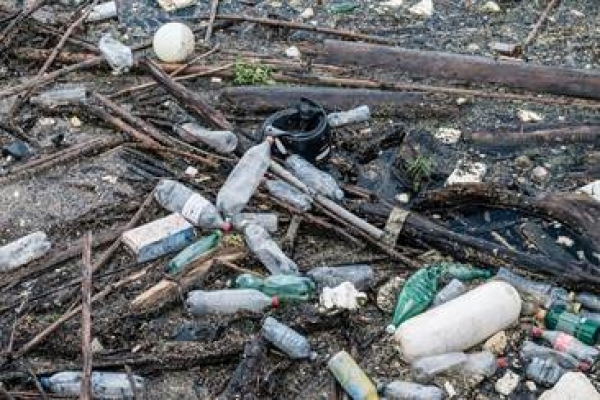The Connecticut River Conservancy hosts their 23rd annual Source to Sea Cleanup on Friday and Saturday, Sept. 27 and 28.
In addition to annually coordinating thousands of volunteers to clean up trash in our rivers, CRC said in a news release that it continues to work toward solutions to the persistent problem of trash pollution.
Plastic bags, bottles, and polystyrene (Styrofoam) are consistently the most found items during the Source to Sea Cleanup and these items never fully break down in the environment.
In 2018, CRC said Cleanup volunteers collected over 22,100 plastic bottles and 1.76 cubic yards of polystyrene from the region's waterways, including 96 pieces of plastic foam dock floats.
CRC is asking for help to spread the word about the plastic problem and the impact on area rivers.
“A picture is worth a thousand words and we are going to put your pictures to work,” says Stacey Lennard, CRC's Cleanup coordinator.
CRC invites the community to enter Source to Sea Cleanup photos showing trashed rivers at their worst in their online photo contest, and to share photos online, via Facebook, Twitter, and Instagram using #PurgeThePlastic hashtag, with local elected officials and the companies whose logos appear on the trash.
CRC is challenging two companies via social media - Dunkin' and Cumberland Farms - whose trash is regularly found during the Source to Sea Cleanup.
“We invite everyone to join us in telling them we expect better,” says Lennard. “We want less single-use plastic and plastic foam; we want more reusable and compostable options; we want items that are easier to recycle and keep out of landfills.”
To learn more, visit www.ctriver.org/takeaction.
According to CRC, the solution to this problem is to redesign our economy so there isn't waste in the first place.
“Vermont and Connecticut are leading the way with their recent statewide bans on single-use plastics,” says CRC Executive Director Andrew Fisk. “It's time businesses step up to voluntarily do the right thing by offering more sustainable, reusable, recyclable, and compostable options.”
CRC is also encouraging dock-owners to swap their plastic foam dock floats for better options, such as plastic barrels or other readily available products.
Other solutions are to make recycling easy, effective, and widely accessible; increase the use of effective incentives like Bottle Bills for recycling aluminum, plastic, and glass containers; and to disincentivize polystyrene (Styrofoam), especially foam dock floats, in favor of enclosed foam or non-foam dock materials that won't send plastic chunks into rivers.
“We all have a responsibility to solve this problem,” says Fisk. “We are responsible as consumers to make good choices in how we purchase and dispose of products. Manufacturers, businesses, and government are also responsible and it's time they do their part.”
Over the past 22 years, Source to Sea Cleanup volunteers have removed more than 1,100 tons of trash from all four states of the 410-mile Connecticut River basin. Each fall, thousands of volunteers remove about 50 tons of trash along rivers, streams, parks, boat launches, trails, and more.
For more information or to register for the event, visit www.ctriver.org/cleanup.
